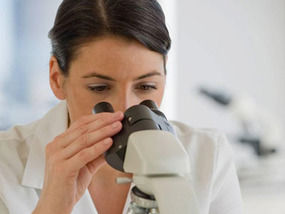
The chemical found in every day containers may cause prostate cancer
A “GENDER bending” chemical found in everyday plastic food and drink containers, tins and baby bottles may cause prostate cancer, scientists are warning.
Levels of the chemical typically found in humans can damage the prostate but also make it inflamed – creating ideal conditions for the disease to develop.
It is the latest research to show that bisphenol A (BPA) is harmful to human health.
It is widely used to harden plastics and is found in baby bottles, CD cases, plastic cutlery and the lining of food and drink cans.
Scientists are concerned at its use because it mimics the female sex hormone oestrogen and may interfere with the way hormones are processed by the body.
Some studies on animals have shown the chemical to be safe, but others have linked it to breast cancer, liver damage, obesity and fertility problems.
It is estimated that BPA is detectable in more than 90 per cent of people and is one of the world’s most widely manufactured chemicals, with more than 2.2million tons made each year.
Denmark became the first EU country to ban BPA in food and drink containers for the under-threes earlier this year and it has also been barred in Canada and three US states.
The latest research, led by experts at the University of Illinois in Chicago, saw newborn rats exposed to a low dose of BPA at levels similar to those found in humans.
It was discovered the level of BPA significantly increased the rats’ susceptibility to certain lesions – which are a known precursor of prostate cancer.
The effect was the same whether the chemical was delivered by injection or given orally.
Gwynne Lyons, director of the Chemicals, Health and Environment Monitoring Trust, said: “This is another study which builds on the mounting evidence to suggest that BPA can contribute to prostate problems in men. But it is not just men who should be wary.
“Growing numbers of studies suggest this hormone-disrupting chemical also contributes to breast cancer in women and behavioural effects in children.
“It is high time that regulatory agencies forced industry to use safer alternatives.”
Only days ago the Daily Express revealed how man-made chemicals in every home are increasing the risk of breast cancer.
The synthetic substances used in foods, cosmetics, household products, plastic and medical treatments are linked to a surge in rates of the disease.
Thursday October 7,2010
By Jo Willey
Source: Express